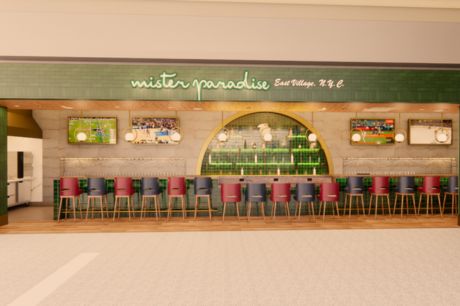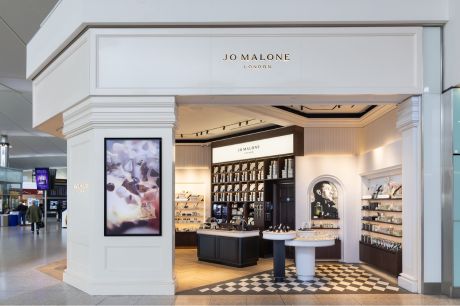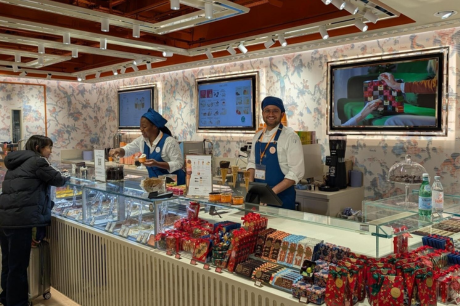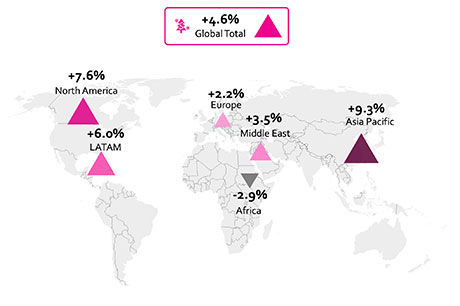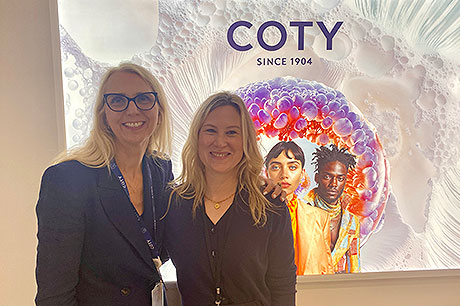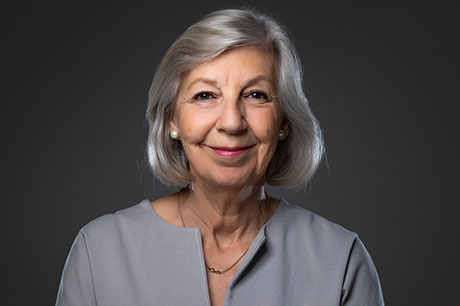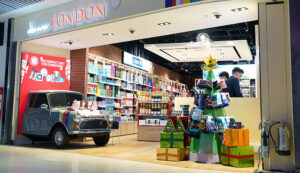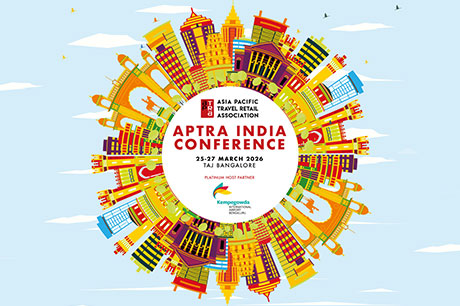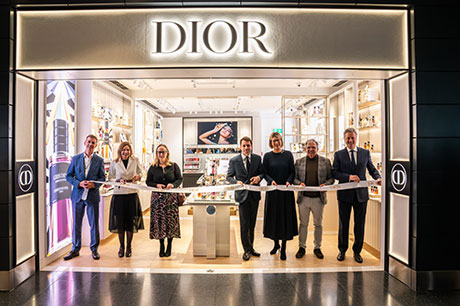Bruichladdich: Sustainability at the beating heart of the business
By Benedict Evans |
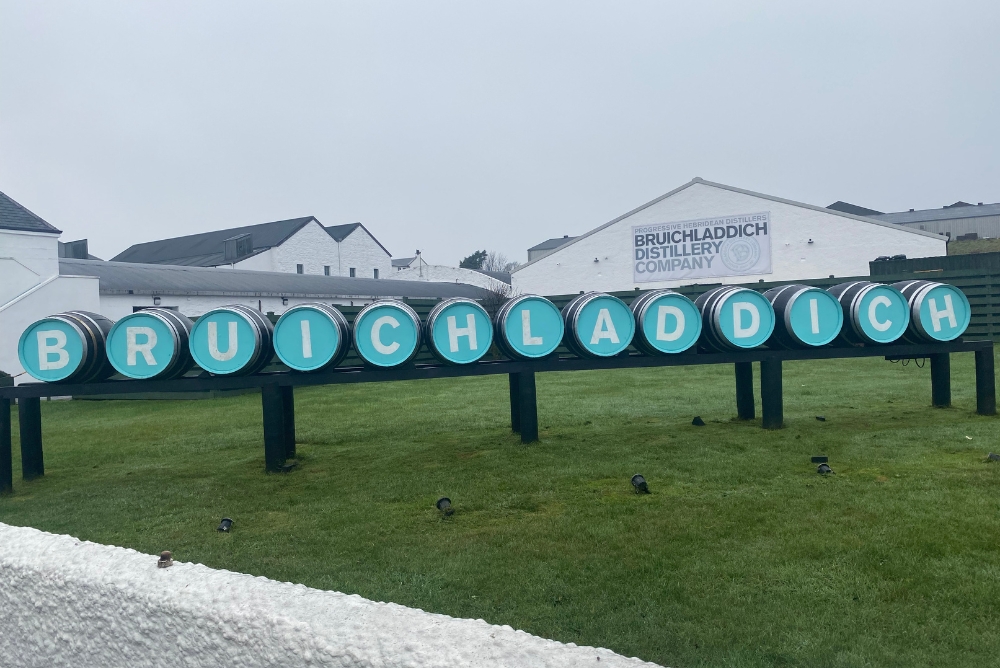
CEO Douglas Taylor was confident Bruichladdich has held environmental and social concerns in high regard since its inception, and continues to do so to this day.
Bruichladdich Distillery, owned and operated by Rémy Cointreau, positions all things ESG as one of the driving forces behind its innovation and production, both in terms of the whisky it makes, and its wider impact. TRBusiness uncovers how it has grown in the past, and where the business is headed next.
If you’ve read the first instalment of this exploration of Bruichladdich distillery, you’ll be familiar with the Islay whisky maker’s intense focus on striking a balance between its natural surroundings – including of course the communities of Islay – and its plans for international growth.
Despite having the very real look and feel of a century-old distillery with seemingly antiquated parts, Bruichladdich – under the purview of Rémy Cointreau – continues to make strides in enhancing, wherever possible, its efficacy and sustainability.
Certified as a B Corp since 2020, Bruichladdich has ambitions of becoming carbon neutral in its distilling operations by 2025, though CEO Douglas Taylor admitted the more likely end date for such a feat would be closer to 2027.
Efforts to reach this goal have included entry into a competition for UK Government green distilleries, wherein Bruichladdich was granted £70,000 for feasibility study on the implementation of an innovatibe technology which could be used to more efficiently run its mash tun.
Taylor said: “The majority of our footprint and emissions is coming from the fuel that we use, yeah, for distilling. So that’s the biggest target, if you like, for us. We hired consultants to come in, examine the facility and say, okay, what could we do?
There were 12 technologies which were explicitly modern technologies we could use, whether they were biomass, biogas, hydrogen, solar, and in the end, we started to look at hydrogen.
We got to the point where we entered the competition for the British government’s green distilleries, and there were about 117 applicants, and there were 70 applicants that were 100 plus applicants, and we were one of the successful applicants who were given 70,000 pounds to do a feasibility study for the second round. And of the second round, there were only four businesses that were successful.

The influence of the natural environment is evident not only in the whisky produced, but in the values shared throughout the company.
They liked our proposals so much that they increased the grant that they had from £10m to £12.5m split across four businesses. We were awarded £2.6m to do a demonstration for hydrogen as a fuel source for electrolysing water, splitting it into hydrogen and oxygen, flash combusting it in a new technology, a new boiler technology, which is called a DCC (Direct Combustion Chamber) boiler, and it would flash combust oxygen and hydrogen together with zero emissions.”
Unfortunately, the plan fell through when it got to the front-end engineering and design phase, owing to limitations on the availability of electricity supply to power the electrolyser, as well as regulations surrounding its placement at an off-site warehouse.
“In the end, we had to forfeit the grant and go back for it, which was a real shame, because we were, we were all of us were really excited about it,” noted Taylor, who added: “You can’t imagine how frustrating it was that we had spent so much time and energy coming up with this amazing pioneering idea. We put a lot of our own time and resource into it.
We’d won the funding, and then we were suddenly experiencing what it’s like to try and push forward on an island, and it was either institutional red tape, or it was infrastructure barriers, or it was just the remoteness of the island.

Bruichladdich has not given up however, and is installing a new hydrogen-ready boiler which is already 17% more efficient than its current one, and will not need to be adapted as and when a reliable supply of hydrogen makes itself known.
“Behind the scenes, we’ve been working with fuel suppliers and moving to biofuels steadily, though the operational cost of doing that is more than double.
But there’s a way of looking at it, and I think more and more everyone is a bit more focused in trying to reduce their carbon emissions.”
Allan Logan, Production Director, Bruichladdich, provided a similarly in-depth peek behind the curtain, noting: “There’s big challenges against getting permission to put anything on land that you know conflicts with its standing as an SSSI (Site of Special Sceintific Interest), but there’s a lot of discussions going on with Scottish Government to try and unlock the potential for renewables for the future.
There is another big project, as we looked at with Scottish Power, looking at an offshore wind project, for which they’re doing the feasibility study off the west coast of island, It’s going to be two megawatts, a mass wind farm, and if the Scottish Government give it the green light in 2026, by 2027/28 essentially, they could be producing renewable electricity just off the coast of island.”

The challenges don’t stop there, as Bruichladdich would likely be oblige dto petition the Scottish government to re-direct some of the energy produced by this project to Islay itself, offering much needed capacity for long overdue infrastructure upgrades to continue powering its distillation facility (pictured).
“We are never trying these things for a competitive advantage. We are doing them to offer a demonstrative example of what can be done to create a pathway for growth,” continued Taylor.
“I think even during our painful journey, it’s opened up avenues for things like hydrogen to be created in a way, so there’s a lot of passion for it here, and a lot of frustration,” he added.

Taylor also spoke to the continuation of Bruichladdich’s ethos as a sustainability-centric organisation: “The idea that we’re just now becoming sustainable is, when we sit back and think about it, not true. It’s more so just the continuation of the beliefs and the principles of the business that we’ve had all along the way, just manifested in different things.”
We’re the biggest private employer on the island; way back in the early 2000s we started working to create organic whisky, harvesting from Islay growers; in 2005 we started working with the Agronomy Institute to resurrect an ancient land race, Bere Barley; in 2007/8 we started to look at anaerobic digestion; we created The Botanist Foundation in 2015 which focuses on conservation, biodiversity and sustainability, we do high school bursaries, and we’re about kick off an apprenticeship programme.
There’s just lots of things in there that that lead you through the DNA of the business, which has always had that social and environmental sustainability edge to it, going back to the origins.”
Within global travel retail, the cornerstone of Bruichladdich’s marketing efforts is the sustainable values it holds dear, as evidenced by the installation at Singapore Changi Airport, and Bruichladdich refuses to let its growth in key markets be defined purely by its balance sheet.
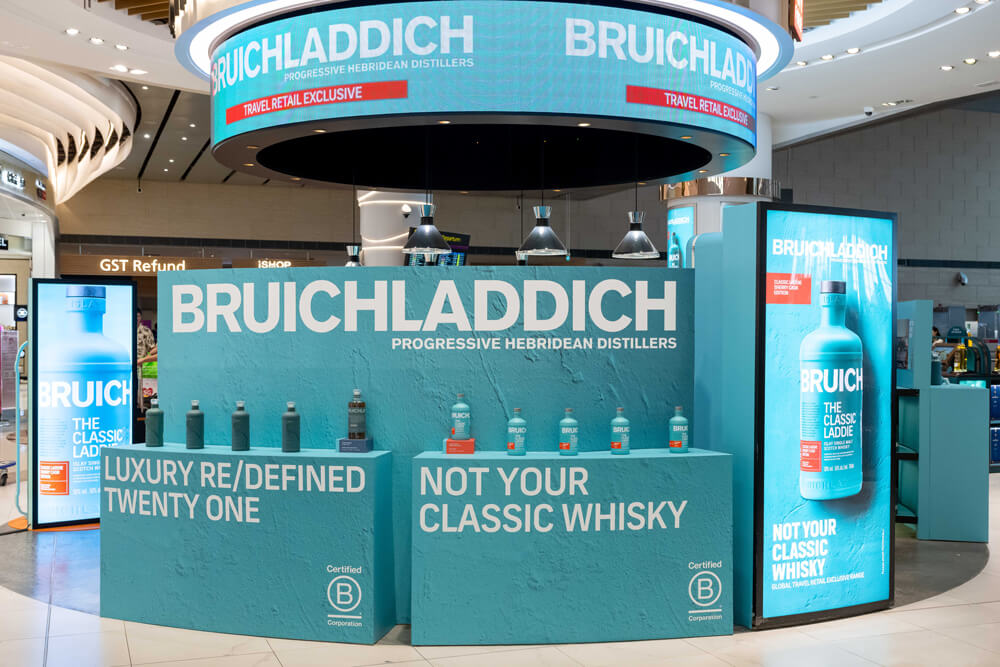
Within global travel retail, the cornerstone of Bruichladdich’s marketing efforts is the sustainable values it holds dear, as evidenced by the installation at Singapore Changi Airport, and Bruichladdich refuses to let its growth in key markets be defined purely by its balance sheet.
“I think growth for us looks like not necessarily just selling more volume, but it looks like it looks at selling more interesting propositions.
If I think about where we will grow, it will be in the US, in GTR, we’ll probably grow in Japan, the UK, those will be the key countries. From a Botanist Gin perspective, it will be the US and GTR.
We must keep driving forward and we are doing so, be that joining the Scotch Whisky Association and being part of their working groups to lobby for change in the industry, whether it be around packaging, whether it be around energy and emissions…I do feel like there’s a positive agitator role for the business. And if we can grow, we can invest more money into the brand building, we can communicate these messages.”
READ MORE: Rémy Martin’s tricentenary celebrations give rise to immersive activation at DXB
READ MORE: On Location: Bruichladdich innovates & diversifies; ‘also makes whisky’
READ MORE: Rémy Cointreau joins TR Sustainability Week 2024 as Silver Partner
SSP wins new food and beverage contracts at JFK Terminal 5
SSP America has won a contract to operate more than 10 units at John F. Kennedy International...
Gaurav Gupta launches Chivas XV activation at Mumbai Airport
Gaurav Gupta has headlined a high-profile promotion for the travel retail exclusive Chivas...
Estée Lauder and Avolta unveil revamped retail spaces at Heathrow
The Estée Lauder Companies (ELC) has partnered with Heathrow Airport and Avolta to upgrade its...
-
 Sustainability News,
Sustainability News,SSP wins new food and beverage contracts at JFK Terminal 5
-
 Sustainability News,
Sustainability News,Gaurav Gupta launches Chivas XV activation at Mumbai Airport
-
 Sustainability News,
Sustainability News,Estée Lauder and Avolta unveil revamped retail spaces at Heathrow

In the Magazine
TRBusiness Magazine is free to access. Read the latest issue now.

 Trbusiness. The travel retail Trbusiness. The magazine for global retail and duty free professionals.
Trbusiness. The travel retail Trbusiness. The magazine for global retail and duty free professionals.